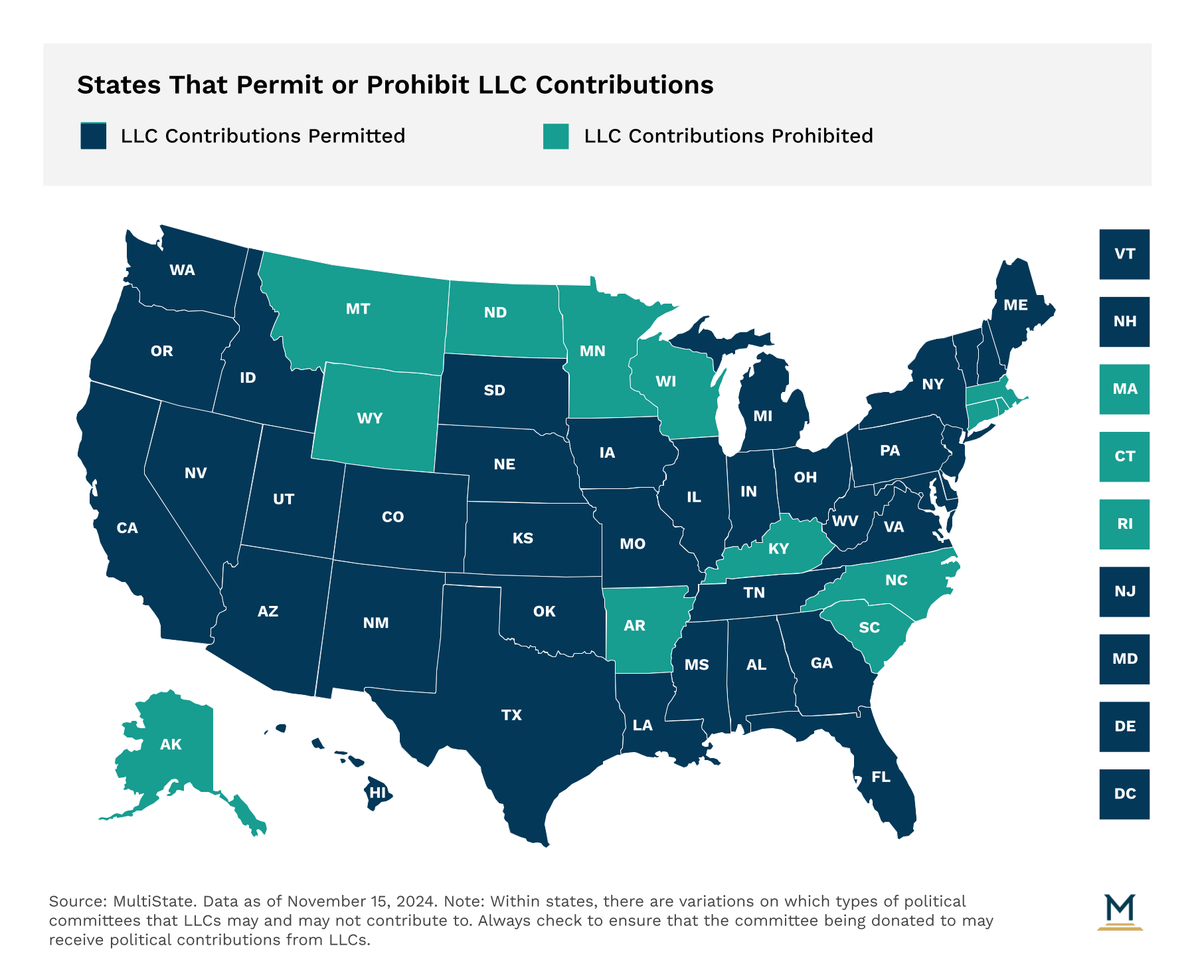
Compliance
States with Lobbying Compliance and Other Deadlines in December 2025
December 3, 2025 | Chase Klingensmith
January 6, 2025 | Ahana Dasgupta

Key Takeaways:
Corporate contributions have been an especially contentious topic for the past few years, with criticisms stemming from both sides of the aisle. As a result of the Supreme Court case Citizens United v Federal Election Commission (2010), the role of wealthy donors and corporations in elections has become a salient and pressing issue. Unfortunately, the flexibility offered by LLCs can also make it difficult to ascertain the origins of political contributions, raising questions about transparency and accountability in politics.
It is important not to dive headfirst into the world of political giving as an LLC without first understanding both federal and state rules. An LLC giving in a state that prohibits this kind of activity or that gives above a contribution limit or beyond what’s permissible for the election cycle opens itself up to civil or criminal penalties depending on the state.
As it stands, the permissibility of LLC political contributions to anything but a Super PAC depends on how the LLC elects to be taxed by the Internal Revenue Service (IRS). It is important to be aware of how LLCs can and cannot participate in federal and state level politics to avoid penalties.
At the federal level, LLCs are not permitted to make political contributions to federal candidates or political action committees if they identify themselves as a corporation when filing their taxes with the IRS or if the LLC has corporate partners or members. LLC’s electing to be treated as partnerships or sole proprietorships may give to candidates or political action committees but the contributions will be attributed to the owners of the LLC and count against the owners’ individual contribution limits.
Currently, 27 states permit LLC contributions to state and local candidates in some form. The map below shows the states that permit LLC contributions to political committees and those that do not. LLC contributors planning to make political contributions should ensure that the state they wish to be active in is one of the states that permit LLC contributions.

Whether a state permits LLC contributions or not is just the tip of the iceberg. States also vary on their regulatory policies governing these contributions. Some states may permit LLC contributions to political action committees but prohibit them to candidate committees. While others may have an unlimited contribution limit to candidates whereas others may have a low contribution limit which we explore below.
Even among states that permit LLC contributions, there are variations as to how much LLCs are permitted to give. Only five states- Alabama, Nebraska, Oregon, Utah, and Virginia - allow unlimited contributions from LLCs. Another 16 states use the same limits for LLC contributors as they do for individual contributors.
In addition to limitations on contributions, states may also limit when an LLC may give. When trying to calculate just how much the LLC may contribute, be aware that jurisdictions may limit contributions per election cycle (such as Colorado), per election (such as Florida), or per year (such as New York). For example, at the federal level, an LLC may give federal candidates up to $6,600 to a candidate for office but the Federal Election Campaign Act (FECA) divides this into two halves, $3,300 for a primary election, and $3,300 for a general election (more may be given if the candidate is in a run-off election). If the candidate loses in the primary, they may not collect an additional $3,300 for the general election unless the candidate has outstanding campaign debt.
Keeping up with rules, deadlines, and often confusing requirements is a daunting prospect for teams of all sizes. Let us manage your federal, state, and local registration and reporting responsibilities, or manage your Campaign Finance program. Read more about our Compliance Services here, or get in touch here.

December 3, 2025 | Chase Klingensmith

November 11, 2025 | Megan Zeiss

November 3, 2025 | Chase Klingensmith, Dylan Busler